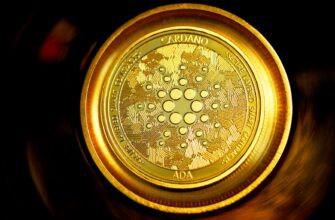- Is Cryptocurrency Halal or Haram? Understanding the Debate
- What Is Cryptocurrency? A Brief Overview
- Islamic Finance Principles: Riba, Gharar, and Maisir
- Arguments for Cryptocurrency Being Halal
- Arguments for Cryptocurrency Being Haram
- How to Invest in Crypto as a Muslim: 5 Key Considerations
- FAQ: Cryptocurrency Halal or Haram?
- Conclusion: Proceed With Caution and Knowledge
Is Cryptocurrency Halal or Haram? Understanding the Debate
As cryptocurrency gains global traction, Muslims are increasingly asking: Is investing in Bitcoin, Ethereum, or other digital currencies permissible under Islamic law? The answer isn’t straightforward, as scholars and financial experts remain divided. This article explores the Islamic perspective on cryptocurrency, analyzing key arguments, Shariah compliance concerns, and practical guidance for Muslim investors.
What Is Cryptocurrency? A Brief Overview
Cryptocurrency is a decentralized digital currency secured by blockchain technology. Unlike traditional money, it operates without central banks or governments. Popular examples include Bitcoin, Ethereum, and Litecoin. Key features include:
- Decentralization: No single entity controls the network.
- Transparency: All transactions are recorded on a public ledger.
- Volatility: Prices can fluctuate dramatically within short periods.
Islamic Finance Principles: Riba, Gharar, and Maisir
To evaluate whether crypto is halal, we must assess it against three core Islamic finance principles:
- Riba (Interest): Earning or paying interest is strictly prohibited. Crypto staking rewards and lending platforms may conflict with this rule.
- Gharar (Uncertainty): Excessive risk or ambiguity in transactions is forbidden. Cryptocurrency’s price volatility raises concerns here.
- Maisir (Gambling): Speculative trading resembling gambling could render crypto haram.
Arguments for Cryptocurrency Being Halal
Proponents highlight these factors to justify crypto’s permissibility:
- Asset Ownership: Crypto functions as a digital asset, similar to gold or real estate.
- Transparency: Blockchain’s public ledger aligns with Islam’s emphasis on honest dealings.
- Financial Inclusion: Crypto can empower unbanked Muslims, aligning with Islamic social justice values.
In 2021, Indonesia’s Nahdlatul Ulama, the world’s largest Muslim organization, declared cryptocurrency halal if used as a commodity rather than a speculative tool.
Arguments for Cryptocurrency Being Haram
Opponents raise these concerns:
- Speculative Trading: Day trading crypto resembles gambling (Maisir).
- Lack of Intrinsic Value: Unlike gold, crypto isn’t backed by physical assets, creating Gharar.
- Illicit Activities: Anonymity in transactions could enable haram practices like money laundering.
Turkey’s Directorate of Religious Affairs ruled Bitcoin haram in 2017 due to its “speculative nature.”
How to Invest in Crypto as a Muslim: 5 Key Considerations
- Avoid Interest-Based Platforms: Steer clear of crypto lending/staking that generates riba.
- Focus on Utility Tokens: Choose coins with real-world use cases (e.g., Ethereum for smart contracts).
- Limit Speculation: Hold long-term instead of frequent trading.
- Verify Shariah Compliance: Consult platforms like Islamic Coin or Wahed Invest.
- Seek Scholarly Guidance: Consult your local imam or Islamic finance expert.
FAQ: Cryptocurrency Halal or Haram?
1. Is Bitcoin halal?
Opinions vary. Some scholars approve it as a digital commodity, while others prohibit it due to volatility.
2. Can Muslims mine cryptocurrency?
Mining is permissible if the energy costs are reasonable and the crypto mined complies with Shariah principles.
3. Are NFTs halal?
NFTs representing halal assets (e.g., art) are allowed, but those linked to haram content (e.g., explicit imagery) are not.
4. What crypto projects are Shariah-compliant?
Islamic Coin (ISLM), XDC Network, and Haqq Network are designed with Shariah oversight.
Conclusion: Proceed With Caution and Knowledge
The halal status of cryptocurrency depends on its use case, underlying technology, and adherence to Islamic principles. While some forms may be permissible, others clearly violate Shariah law. Muslims should conduct thorough research, prioritize ethical projects, and consult qualified scholars before investing.








